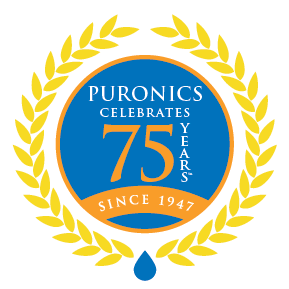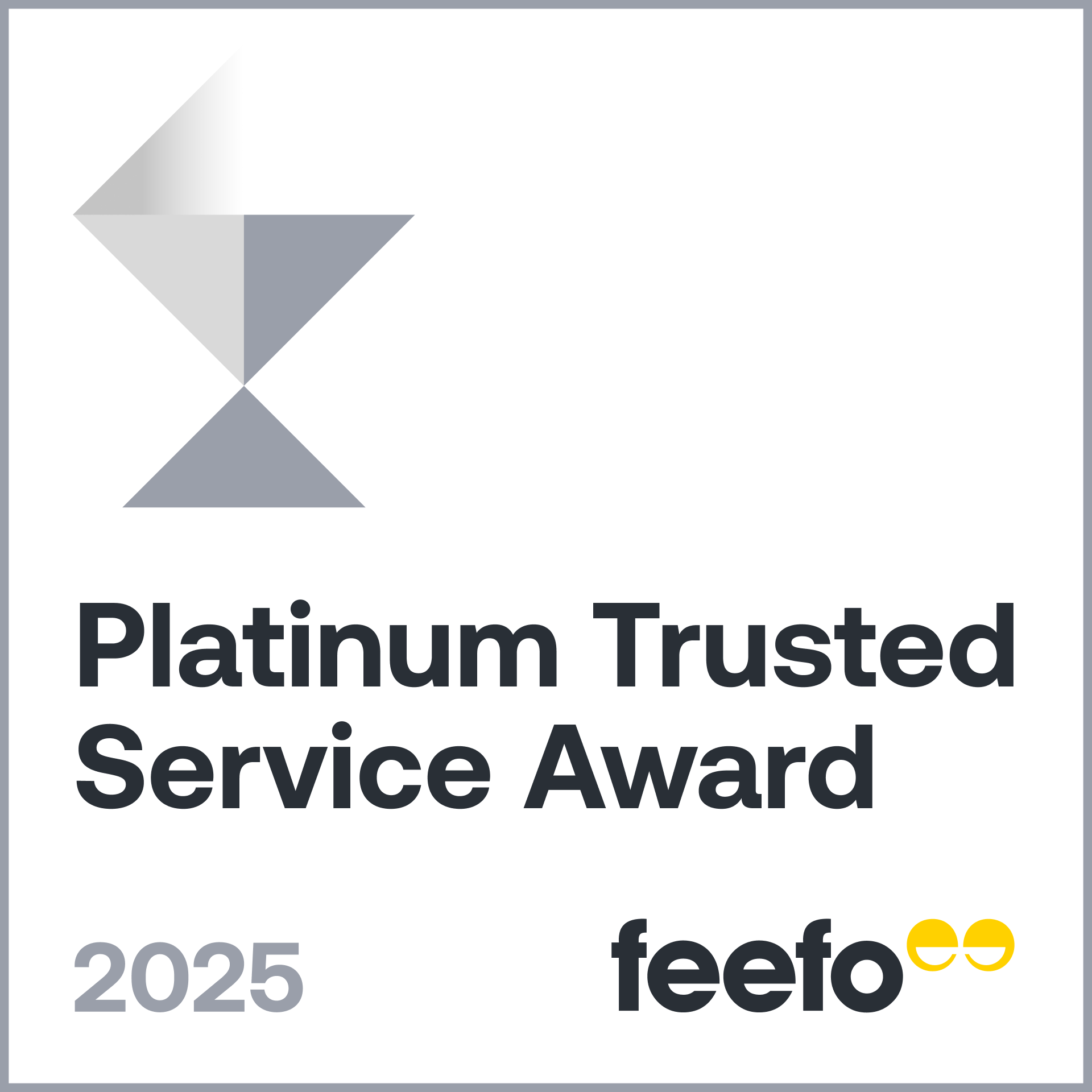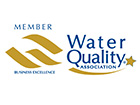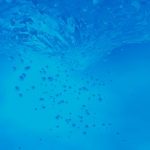Last Updated on August 26, 2021
As you’ve been searching for a water softener for your home, you may have noticed that some mention that they’re tested and certified. What does it mean if a water softener has been tested and certified? An independent third party has looked at the system and validated that it meets certain criteria. We’ll cover why it’s important, what certifications to look for, who these third parties are and where you can find a certified water softener.
Why Do Certifications Matter?
Water comes into contact with everything in your home, plus you use it for drinking and cooking. Certified products are rigorously tested by independent, third parties to ensure that no harmful substances leach into your home’s water from the system. This means your water is safe to use under normal circumstances as defined by the standard.
These third parties also examine the claims made by the manufacturer about performance. They test the products against industry standards to make sure they do what the manufacturer says they do. They also test for structural integrity, confirming that the product will handle normal use without being damaged. The product must be retested regularly to maintain certification.
On top of testing for safety, performance, and structural integrity, these independent third parties conduct audits of manufacturing facilities. This ensures that the products are consistently made to meet the standards they are certified for.
Some water treatment systems state that they are made from certified components. While this may sound like the same thing, it isn’t. The final product may not provide water that is safe for human health. The performance claims from a product that is not certified as a product have not been verified by a third party, and the manufacturing facility has not been audited.
What Certifications Should I Look For?
When you’re looking for a water softener, there are a few standards that are important. These standards are developed and defined by NSF International and the American National Standards Institute (ANSI).
NSF/ANSI 44
Products certified to this standard are residential water softeners that include cation exchange resin that is regenerated with sodium chloride or potassium chloride. A water softener that meets this standard reduces hardness below 1 grain per gallon (17.1 parts per million), providing soft water. It also must meet material safety and structural integrity requirements.
Additionally, water softeners that meet this standard may also meet other criteria. They may be tested for barium reduction as well as radium 226/228 reduction. Another claim that can be tested under this standard is how efficient the regeneration cycle is. The more efficient, the less salt (sodium chloride or potassium chloride) required. The NSF rating for salt efficiency is at least 3,350 grains of hardness removed per pound of salt. However, California has a stricter standard. To meet the California salt efficiency rating, the water softener must remove at least 4,000 grains per pound of salt.
NSF/ANSI 42
Products certified to this standard are drinking water treatment units that have one or more aesthetic effects on water. Most water softeners are not designed for drinking water treatment, so they don’t meet this standard. Some claims that can be tested for under this standard include chlorine, taste, and odor. The product must also meet material safety and structural integrity requirements.
NSF/ANSI 372
This standard is very important to look for. This ensures that the product does not contain unsafe levels of lead which could potentially leach into your water. The standard is consistent with the United States Safe Drinking Water Act’s lead-free plumbing requirements. Many different types of products, including pipes and faucets, can be tested to this standard. Since your water softener is coming directly into contact with your water, having a third party verify that it is lead-free will assure you of its safety.
Who Certifies Water Softeners?
There are three independent organizations that certify products for at least two of the above standards and are accredited by ANSI. These include the Water Quality Association (WQA), NSF International, and the International Association of Plumbing and Mechanical Officials (IAPMO).
Water Quality Association
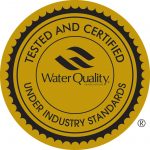 The WQA is a not-for-profit association for the water treatment industry. In addition to certifying products to all of the above standards, they educate and certify people who work in the industry. They also provide information on water and water treatment for the public. The WQA’s certification mark is the WQA Gold Seal. Most Puronics products, including our water softener systems, carry the WQA Gold Seal for one or more standards.
The WQA is a not-for-profit association for the water treatment industry. In addition to certifying products to all of the above standards, they educate and certify people who work in the industry. They also provide information on water and water treatment for the public. The WQA’s certification mark is the WQA Gold Seal. Most Puronics products, including our water softener systems, carry the WQA Gold Seal for one or more standards.
NSF International
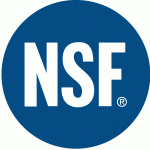 This organization began as the National Sanitation Foundation, first developing standards for luncheonette and soda fountain equipment. In addition to helping establish safety and performance standards for various industries, NSF International provides testing and certification to their standards. The NSF mark indicates that a product has met one or more standards. Some Puronics products are tested and certified by NSF International.
This organization began as the National Sanitation Foundation, first developing standards for luncheonette and soda fountain equipment. In addition to helping establish safety and performance standards for various industries, NSF International provides testing and certification to their standards. The NSF mark indicates that a product has met one or more standards. Some Puronics products are tested and certified by NSF International.
International Association of Plumbing and Mechanical Officials
 The IAPMO Group is a membership-based association that develops uniform plumbing and mechanical codes. They also test and certify products, including water softeners, however, they do not provide certification for NSF/ANSI 372. Water softeners that have been certified by IAPMO carry their Water Quality Platinum Seal.
The IAPMO Group is a membership-based association that develops uniform plumbing and mechanical codes. They also test and certify products, including water softeners, however, they do not provide certification for NSF/ANSI 372. Water softeners that have been certified by IAPMO carry their Water Quality Platinum Seal.
How Do I Find a Certified Water Softener?
Puronics water softeners are certified by WQA to NSF/ANSI 44 and NSF/ANSI 372. Our Chlorostatic® water softeners are also certified by WQA to NSF/ANSI 42 for chlorine, taste, and odor reduction. Additionally, they meet the requirements for being California efficiency rated, so you don’t need to replenish the sodium chloride or potassium chloride frequently. They are also certified to reduce radium 226/228, barium, and strontium. In addition, Puronics manufacturing facility is audited to confirm consistent quality.
Apart from IAPMO, the organizations’ websites provide a certified product search tool. If you want to verify that a particular brand is certified, enter the name in the product certification search bar. A list of models or a list of standards will appear. Click on the one you want to know more about, and you’ll find additional details.
If you want a water softener that will do what it claims and will last, you definitely want to find a certified system. Make sure the claims are backed up by testing and regular audits. A quality system can last decades as opposed to a few years. Good quality water impacts your home, your body, and your budget, so it’s worth investing in. Request a free consultation and quote to improve your water.
© 2020 Puronics All Rights Reserved

 Puronics, Incorporated
Puronics, Incorporated